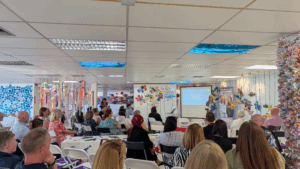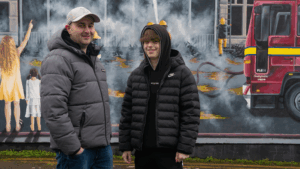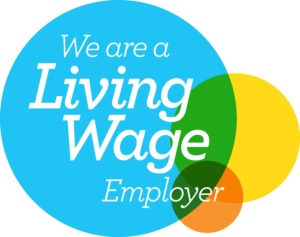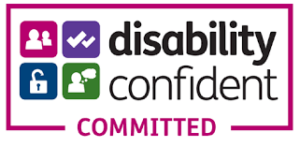Over 1,000 secondary school pupils across Scotland have shared their experience of lockdown in a survey with award-winning mentoring charity, MCR Pathways. Those surveyed were Scotland’s most disadvantaged young people for whom lockdown and home education was extremely challenging. The impact of both is now a major risk to their futures.
Alarmingly, almost 70% of young people surveyed were unable to do any school work during lockdown. Half of these said it was too hard to understand, over 40% said they were too stressed and significantly, 1 in 4 had other caring responsibilities that took over.
Highlighting major mental wellbeing issues, two thirds of young people (66.8%) were feeling low, anxious and stressed. Overwhelmingly, almost 90% of young people said their sleeping patterns have dramatically altered with over a quarter experiencing significantly disturbed sleep.
MCR is calling for schools to give equal focus on young people’s mental wellbeing as well as academic education for the first few months returning to school. The charity, which works with 2,400 care-experienced and disadvantaged young people every week, advocates that school recovery curricula include focus on wellbeing, healthy sleep, exercise and eating habits, and reestablishment of relationships with teachers and peers. Critically, with 75% asking for more one-to-one time with teachers, additional capacity needs to be built in to ensure the most disadvantaged do not become the lost COVID-generation.
Returning To School
When asked about returning to school, young people were most concerned with the difficulties surrounding getting back into a routine (80.5%), closely followed by being behind with school work (76.2%). 60% were concerned about catching the virus and passing it on to family members. Three quarters of young people asked for additional support through one-to-one time with their teachers when they return. An overwhelming 82.2% wanted the help of an MCR mentor clearly highlighting how vital individual relationship based support is for both wellbeing and education.
The young people have been clear that they also think of schools as safe places and want the full time routine and structure. MCR are strongly recommending if there is a second lockdown that full time education is continued for those that need it most and alternative buildings found if necessary.
MCR Pathways Founder, Iain MacRitchie said:
“Given the impact of lockdown on our most disadvantaged, we felt it was absolutely critical that young people’s voices were heard and centre stage for all decisions on how to build back better. The loss of education has been compounded by the profound impact on mental wellbeing, confidence and self belief. To avoid losing a generation and further fuelling the attainment crisis, we need to listen very closely to the young people and do what they need us to do. Their feedback is crystal clear.
“One example of what works for the young people and a surprise to the adult view, is how important printed materials are to home education. Over 42.1% of young people want them as part of home learning plans in the event of a second lockdown. 20% of our most disadvantaged don’t have the space at home to work, and 15% still don’t have the IT kit or internet access. Many are trying unsuccessfully to learn using only their phones. This all culminates in our most disadvantaged, despite being keen to engage in learning, facing multiple and continuous barriers preventing them. We must not allow the increasing inequality and a rapidly widening attainment gap to continue.
“Young people told us they need to be in school full time and it’s clear that the most vulnerable and disadvantaged need 1:1 teacher time and supportive relationships as a central part of all recovery plans. It is heartbreaking to hear young people saying they have lost all social interaction abilities, that they now feel sad most of the time and can’t get out of bed as they have nothing to look forward to and no one to help or encourage them.
“Schools are not just for education, they are safe havens, community hubs and where hope and aspiration is nurtured. If there is a second lockdown we must find a way and alternative buildings if necessary to continue full time education for those that need it most.
“With 82.2% stating they want a mentor to help them, an overwhelming number of young people believe MCR mentoring is vital to their success. We want every care-experienced and disadvantaged young person to have the relationship focused support of an MCR mentor and be engaged in our Young Scottish Talent programme. We are committed to transfer MCR into public ownership and will devote ourselves to making this happen.”
Concerns For The Future
Young people have serious concerns about their immediate future. 80% of young people are either worried or do not believe they will get the grades they deserve. 61.5% of school leavers are worried they won’t get into their chosen university or college, or are unsure what to do next.
S6 Pupil from Lourdes Secondary, Glasgow says:
“I still want to follow the same career path as before, it’s just going to take me longer than planned due to expected exam results and fears.”
Since the beginning of lockdown in March, The MCR Pathways team have been working closely with schools to remotely support young people. MCR’s team has continued to nurture the vital relationships between young people and their mentors on a rapidly developed virtual mentoring system. A return to mentoring in school is being planned for when schools reopen.
MCR Pathways was established in 2007 and supports 2,400 disadvantaged and care-experienced young people each week. The charity’s goal is that every care-experienced and disadvantaged young person in Scotland gets the same education outcomes, career opportunities and life chances as every other young person.
To see the report in full, please visit the following link.





